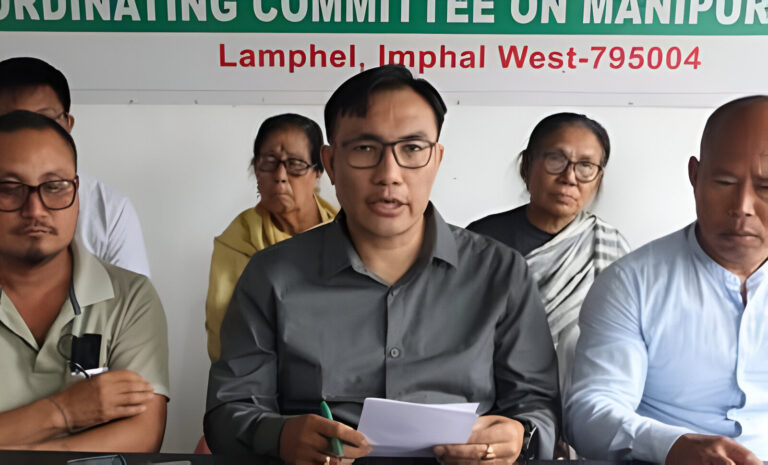Manipur Minister Responds to Allegations of Legislative Session Shortfall
Summary of the News
On December 24, 2024, Manipur’s Law and Legislative Affairs Minister, Thounaojam Basantakumar, addressed allegations regarding the state government’s inability to convene the required three legislative sessions in 2024. He attributed this deviation to extraordinary circumstances, including the lingering effects of the COVID-19 pandemic and unrest in May 2023, emphasizing the government’s commitment to constitutional principles despite these challenges.
A Comprehensive Analysis of Legislative Session Shortfalls in Manipur
In the world of governance, legislative sessions are like the vital gears of a machine—they keep democracy running smoothly. When a state fails to meet the constitutional requirement of holding regular sessions, questions about governance, accountability, and adherence to democratic norms naturally arise. Let’s dive deep into Manipur’s recent controversy surrounding its legislative calendar and unravel the broader context behind it.
What Are Legislative Sessions, and Why Do They Matter?
Legislative sessions are the beating heart of any democracy. They’re where laws are made, policies are debated, and the government is held accountable. For states like Manipur, these sessions are particularly important because they ensure diverse voices are heard and regional issues are addressed.
Think of it as a giant family meeting. If the meeting doesn’t happen, miscommunication or unresolved problems can quickly escalate. The Constitution of India mandates that no more than six months should pass between two legislative sessions, ensuring the assembly remains active and engaged.
The Allegations Against the Manipur Government
The Manipur Pradesh Congress Committee (MPCC) accused the state government of failing to convene three legislative sessions in 2024, falling short of the constitutional mandate. They argued that such lapses undermine the democratic process, leaving the opposition without a platform to address pressing issues.
The Minister’s Defense: Unprecedented Challenges
In response, Minister Thounaojam Basantakumar acknowledged the shortfall but offered a nuanced explanation. He pointed to two significant factors:
- The Aftermath of COVID-19
While the pandemic’s peak was behind us, its aftershocks continued to disrupt governance structures. Meetings were delayed, priorities shifted, and logistical hurdles persisted. - May 2023 Violence
The violent unrest that broke out in May 2023 threw the state into turmoil. Maintaining law and order became a top priority, often taking precedence over legislative activities.
Basantakumar also noted that this wasn’t the first time such a shortfall had occurred. Similar situations were recorded in 2003, 2007, 2008, 2009, and 2016, highlighting that while it’s not ideal, it isn’t unprecedented.
The Broader Implications of Missing Legislative Sessions
When legislative sessions aren’t held as required, the impact goes beyond procedural lapses. Let’s explore some of the key consequences:
- Delayed Decision-Making
Without sessions, critical bills and policies can’t be introduced or debated, leading to delays in addressing public concerns. - Weakened Accountability
Legislative sessions are where opposition parties question the government, ensuring transparency and accountability. Fewer sessions mean fewer opportunities for scrutiny. - Erosion of Public Trust
When governance appears to deviate from constitutional norms, it risks alienating citizens and eroding their faith in democratic institutions.
Historical Context: Has This Happened Before?
Manipur isn’t new to legislative shortfalls. Records show that in multiple years—2003, 2007, 2008, 2009, and 2016—the state assembly convened only twice. This pattern suggests systemic challenges, possibly rooted in administrative inefficiencies or political dynamics.
The Role of Opposition in Strengthening Democracy
Opposition parties, such as the MPCC, act as watchdogs in a democracy. By raising concerns about legislative shortfalls, they ensure the ruling government remains answerable to the people. While these allegations often spark political debates, they play a vital role in maintaining a balance of power.
Is There a Way Forward?
Addressing such challenges requires a mix of proactive governance and collaborative policymaking. Here are some potential solutions:
- Strengthening Communication Channels
Open dialogues between the government and opposition can preempt conflicts and ensure smoother functioning. - Prioritizing Legislative Calendars
Even amidst crises, governments must prioritize convening sessions, as they’re integral to democratic governance. - Leveraging Technology
Virtual sessions, a concept popularized during the COVID-19 pandemic, can be a game-changer for ensuring continuity in governance.
Lessons for Other States
Manipur’s experience serves as a cautionary tale for other states. It underscores the importance of adhering to constitutional mandates, even in the face of extraordinary challenges. By learning from such instances, other states can strengthen their legislative processes and avoid similar controversies.
Conclusion: A Balancing Act
Governance is often a juggling act, especially during crises. While the reasons provided by the Manipur government—pandemic disruptions and civil unrest—are valid, they don’t absolve the state of its constitutional obligations. Transparent communication, timely corrective measures, and a commitment to democratic principles are essential to restore public confidence and ensure smooth governance in the future.
FAQs
- What does the Constitution say about legislative sessions?
Article 174 mandates that no more than six months should pass between two sessions of a state legislative assembly. - Why didn’t Manipur hold the required sessions in 2024?
The government cited disruptions caused by the COVID-19 pandemic and the violence in May 2023 as major reasons for the shortfall. - Has this happened in Manipur before?
Yes, similar shortfalls were recorded in 2003, 2007, 2008, 2009, and 2016. - What role does the opposition play in this context?
Opposition parties act as watchdogs, holding the government accountable for any lapses in governance. - Can virtual sessions address such issues?
Absolutely. Virtual sessions can ensure legislative continuity, even during crises.



